Recent Blog Posts
Can You File Bankruptcy and Keep Operating Your Business?
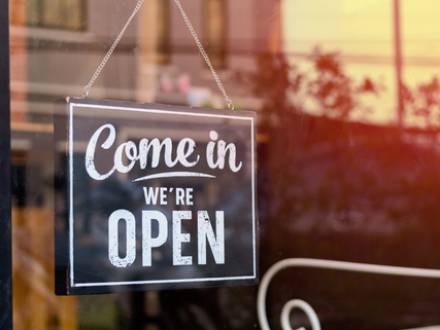 For business owners, the word "bankruptcy" can feel scary. Many people worry it means losing everything they built. In reality, some types of bankruptcy are meant to help businesses survive, not disappear. In many cases, you can file for bankruptcy and keep operating your business. Bankruptcy does not always mean closing your doors. For many small business owners, it is a way to deal with debt, protect assets, and stay open.
For business owners, the word "bankruptcy" can feel scary. Many people worry it means losing everything they built. In reality, some types of bankruptcy are meant to help businesses survive, not disappear. In many cases, you can file for bankruptcy and keep operating your business. Bankruptcy does not always mean closing your doors. For many small business owners, it is a way to deal with debt, protect assets, and stay open.
This issue is becoming more common in 2026. Many businesses are seeking relief rather than shutting down. If your business is under financial pressure, a Charlotte, NC small business bankruptcy lawyer can help you understand whether bankruptcy may allow you to keep operating.
How Can I Rebuild Credit After Bankruptcy?
 As of 2026, rebuilding credit after bankruptcy still focuses on steady habits over time, not fast fixes. Bankruptcy clears or reorganizes debt, which gives many people a fresh start. However, it also creates real concern about what comes next.
As of 2026, rebuilding credit after bankruptcy still focuses on steady habits over time, not fast fixes. Bankruptcy clears or reorganizes debt, which gives many people a fresh start. However, it also creates real concern about what comes next.
In 2025, personal and business bankruptcy filings increased by about 11.5 percent nationwide, according to federal court data, showing that many people are now facing the same rebuilding process. If you have filed or are considering filing for bankruptcy, a Mecklenburg County, NC bankruptcy lawyer can help you understand how to move forward and realistically rebuild credit.
What Happens to Your Credit After Bankruptcy in North Carolina?
After bankruptcy, your credit report will show the filing and how certain debts were handled. A Chapter 7 bankruptcy can remain on your credit report for up to 10 years. Under the Fair Credit Reporting Act, consumer reporting agencies are allowed to report bankruptcies for a limited number of years, after which the filing must fall off your credit report.
FCRA Protections for North Carolina Chapter 7 Filers
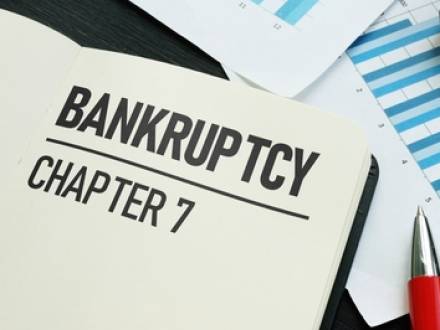 As a North Carolina resident, your credit report has a major role to play in your life after bankruptcy. Following a Chapter 7 bankruptcy, the Fair Credit Reporting Act (FCRA) provides some very powerful protections if you understand how to use them. From correcting creditor reporting errors to removing discharged debts, the FCRA ensures that national credit bureaus report your bankruptcy accurately and fairly.
As a North Carolina resident, your credit report has a major role to play in your life after bankruptcy. Following a Chapter 7 bankruptcy, the Fair Credit Reporting Act (FCRA) provides some very powerful protections if you understand how to use them. From correcting creditor reporting errors to removing discharged debts, the FCRA ensures that national credit bureaus report your bankruptcy accurately and fairly.
While your credit will not immediately begin improving following a Chapter 7 bankruptcy discharge, it will gradually increase, and you should see notable improvement within 12 to18 months. However, inaccurate reporting by creditors and credit bureaus can delay the clean slate you are entitled to. The smallest error, like an outdated balance, can continue to drag your credit score down for years. These reporting errors not only violate the FCRA, but they can also make it harder to rent an apartment, finance a vehicle, and rebuild your credit.
Livestock or Pet? NC Chapter 7 Bankruptcy Exemptions Explained
 When farmers, breeders, or rural residents in North Carolina file for Chapter 7 bankruptcy, one of the most frequently overlooked questions concerns their animals, rather than their land or equipment. Under Section 1C-1601(a)(8), certain "animals and crops" are exempt from liquidation, but there can be an issue when the trustee labels a debtor’s goats, horses, or chickens as pets rather than livestock.
When farmers, breeders, or rural residents in North Carolina file for Chapter 7 bankruptcy, one of the most frequently overlooked questions concerns their animals, rather than their land or equipment. Under Section 1C-1601(a)(8), certain "animals and crops" are exempt from liquidation, but there can be an issue when the trustee labels a debtor’s goats, horses, or chickens as pets rather than livestock.
Recent North Carolina trustee challenges have turned this gray area into a legal battlefield, particularly for small farmers who often keep mixed-purpose animals. To better understand how courts and trustees classify animals and how you can protect legitimate agricultural assets during Chapter 7 bankruptcy, it can be beneficial to speak to a skilled Mecklenburg County, NC bankruptcy lawyer.
Will Bankruptcy Cost You an ABC Permit in North Carolina?
 If you are the owner of a North Carolina winery, brewery, restaurant, or bar, the cornerstone of your business could well be your permit to sell alcohol. If the economic downturn has affected your business, you may be facing bankruptcy and wondering whether you will be able to keep your alcohol permit. The North Carolina Alcoholic Beverage Control (ABC) Commission has strict rules about who can and cannot hold an alcohol permit, so a bankruptcy filing could raise a red flag.
If you are the owner of a North Carolina winery, brewery, restaurant, or bar, the cornerstone of your business could well be your permit to sell alcohol. If the economic downturn has affected your business, you may be facing bankruptcy and wondering whether you will be able to keep your alcohol permit. The North Carolina Alcoholic Beverage Control (ABC) Commission has strict rules about who can and cannot hold an alcohol permit, so a bankruptcy filing could raise a red flag.
This does not mean that you will automatically lose your alcohol permit, only that bankruptcy could trigger an investigation into the management, compliance, and overall financial situation of your business. You must understand how bankruptcy can potentially impact your business’s alcohol permit before you file. Consulting with an experienced Charlotte, NC small business bankruptcy attorney can help you determine the best way to get your finances back on track.
Should You File Chapter 7 Before or After a Lawsuit?
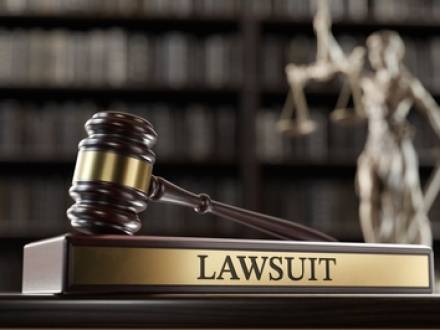 Perhaps you have just been served with a lawsuit for unpaid debt. Whether related to credit card debt, personal loans, or medical bills, a lawsuit causes fear and panic for most people. What will happen if your wages are garnished?
Perhaps you have just been served with a lawsuit for unpaid debt. Whether related to credit card debt, personal loans, or medical bills, a lawsuit causes fear and panic for most people. What will happen if your wages are garnished?
Could a lien be placed on your home, or your bank accounts frozen? If you find yourself in such a situation, you should know that filing Chapter 7 bankruptcy can potentially stop a lawsuit, but the timing of your bankruptcy filing is crucial.
Whether you should file before your lawsuit proceeds or wait depends on your specific situation. Making the wrong choice can be financially costly and may also result in the loss of certain rights. To avoid making a misstep, consulting with an experienced Charlotte, NC bankruptcy attorney is your best course of action.
Understanding Debt Lawsuits in North Carolina
In North Carolina, creditors can file a complaint in civil court for unpaid debts. The debtor will receive a summons and complaint and must file a written answer with the court, responding to each numbered paragraph in the complaint (admit, deny, or state lack of knowledge).
Facing Wage Garnishment? Chapter 7 Bankruptcy May Stop It
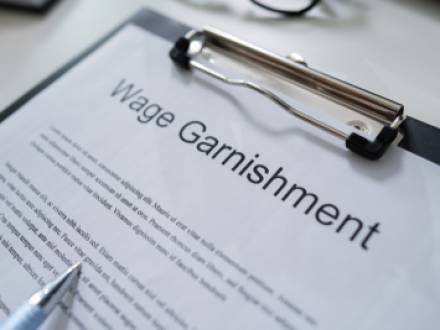 If you feel financially ambushed every time you get a paycheck and see that your hard-earned dollars have vanished before you have even seen them, you are not alone. While North Carolina creditors have limited options regarding the garnishment of wages, once a court order is in place, you may see your take-home pay shrink dramatically.
If you feel financially ambushed every time you get a paycheck and see that your hard-earned dollars have vanished before you have even seen them, you are not alone. While North Carolina creditors have limited options regarding the garnishment of wages, once a court order is in place, you may see your take-home pay shrink dramatically.
If struggles with debt are starting to feel like your new normal, the added pressure of wage garnishment can be overwhelming. For many, Chapter 7 bankruptcy can offer a powerful solution to garnishments and creditor calls, providing much-needed breathing room and allowing for a fresh financial start. If you are facing wage garnishment, along with other crushing debts, it may be time to speak to an experienced Union County, NC bankruptcy attorney.
Behind on Medical Bills? Chapter 7 Could Offer Relief
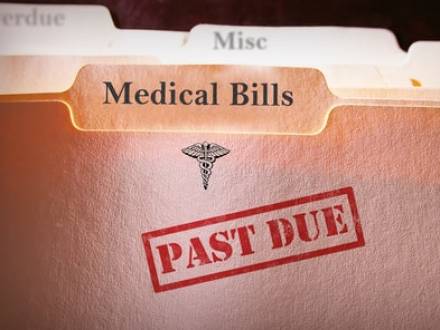 Medical debt is one of the leading causes of financial troubles in North Carolina and across the United States. Whether due to a sudden emergency, a chronic or severe illness, gaps in insurance, or high deductibles, overwhelming medical bills can quickly spiral out of control. With more than 100 million Americans owing $220 billion in medical debt, it is estimated that at least 66 percent of those who file for bankruptcy cite medical debt as the primary cause.
Medical debt is one of the leading causes of financial troubles in North Carolina and across the United States. Whether due to a sudden emergency, a chronic or severe illness, gaps in insurance, or high deductibles, overwhelming medical bills can quickly spiral out of control. With more than 100 million Americans owing $220 billion in medical debt, it is estimated that at least 66 percent of those who file for bankruptcy cite medical debt as the primary cause.
Discharging your medical debt through Chapter 7 bankruptcy could provide relief and give you a fresh start. Consulting with an experienced Charlotte, NC bankruptcy attorney can provide you with the answers you need to help determine whether filing for Chapter 7 bankruptcy is the right choice for you.
What Debts Can be Discharged in Chapter 7 Bankruptcy?
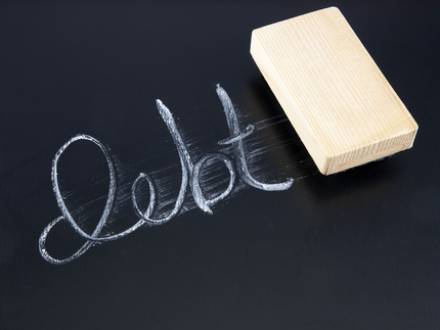 Perhaps you amassed too much credit card debt as a result of youthful indiscretion, or incurred a large and sudden medical debt after an unexpected health scare. You may have lost a job and suffered financial consequences. Whatever the reason, bankruptcy erases many debts and provides a financial fresh start.
Perhaps you amassed too much credit card debt as a result of youthful indiscretion, or incurred a large and sudden medical debt after an unexpected health scare. You may have lost a job and suffered financial consequences. Whatever the reason, bankruptcy erases many debts and provides a financial fresh start.
In Chapter 7 bankruptcy specifically, many of your debts will be discharged, meaning that you will no longer be responsible for paying for them. An experienced Mecklenburg County, NC Chapter 7 bankruptcy attorney can review your case to advise you on the debts that would be dischargeable in bankruptcy.
Do You Need to Have a Certain Amount of Debt to File for Chapter 7 Bankruptcy?
There is no minimum debt requirement to file for Chapter 7 bankruptcy. However, while Chapter 7 can be an opportunity to get your finances in order, it has its downsides. It can affect your credit score, you may have to give up certain assets, and you can only file Chapter 7 every eight years. For these reasons, it is recommended that you only take advantage of this process if you have a significant amount of debt.
Should You Surrender Your Property in Chapter 7 Bankruptcy?
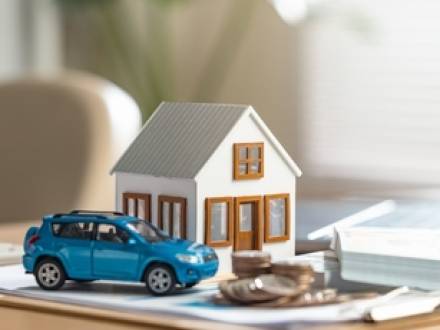 If you are filing for bankruptcy, you are doing so in all likelihood because you have a great deal of debt and need a financial fresh start. You may also be concerned that your financial troubles could cause you to lose your car or home. Indeed, many people turn to bankruptcy to keep these assets. So it may surprise you to hear that there are situations in which it might make sense to give up an asset or surrender it in bankruptcy. When does it make sense to give up your car or home in bankruptcy? This is a complex question that is very dependent on your particular circumstances, but an experienced Charlotte, NC Chapter 7 bankruptcy attorney can advise you on whether surrendering certain assets in bankruptcy is the right decision for you.
If you are filing for bankruptcy, you are doing so in all likelihood because you have a great deal of debt and need a financial fresh start. You may also be concerned that your financial troubles could cause you to lose your car or home. Indeed, many people turn to bankruptcy to keep these assets. So it may surprise you to hear that there are situations in which it might make sense to give up an asset or surrender it in bankruptcy. When does it make sense to give up your car or home in bankruptcy? This is a complex question that is very dependent on your particular circumstances, but an experienced Charlotte, NC Chapter 7 bankruptcy attorney can advise you on whether surrendering certain assets in bankruptcy is the right decision for you.
What Happens to Your Secured Versus Unsecured Debt in Chapter 7?
Chapter 7 bankruptcy treats secured and unsecured debt very differently. Unsecured debt, like your credit card or medical debt, is usually discharged or erased in bankruptcy. Secured debt refers to debt on property that is secured by collateral–the asset itself. This includes things such as car loans, mortgages, and loans on various appliances. With secured debt, you are liable for both the loan and the lien that attaches to the property. In bankruptcy, your liability for the debt is discharged, but the creditor can still recover on the lien. That means that you must continue to pay for that debt or risk losing the asset, even in bankruptcy.


 704-BLOSSOM
704-BLOSSOM

